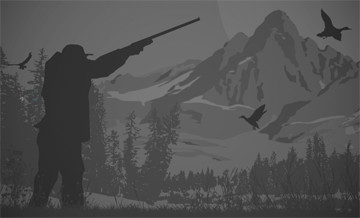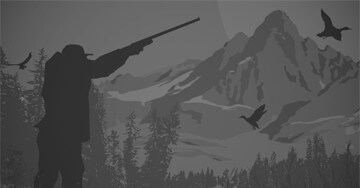Blue Wildebeest hunting
417 hunting trips from 135 outfitters starting from $780
Where to hunt Blue Wildebeest
Who hasn’t seen, at least on TV or in an illustrated magazine, the breathtaking scene of an uncountable herds of this antelope during their annual migration? The stubborn-looking, hump-backed antelope with short, curving horns, that provides this incredible footage is known as the Blue Wildebeest, a.k.a. Common Wildebeest, a.k.a. Brindled Gnu. The herds of this antelope dwell in the savannas and open spaces of Eastern and Southern Africa. This page gives the hunting opportunities for the Blue Wildebeest proper, that can be hunted in South Africa, Zimbabwe, Namibia, and Botswana. For information on other subspecies of the Blue Wildebeest,including White-Bearded Wildebeest, Cookson’s Wildebeest, and Nyasa Wildebeest, that are recognized by international record books but not official biological classification, please see the relevant pages.
Price distribution
The most affordable opportunities to hunt Blue Wildebeest are cull hunts, that can be found at under $1,000. Trophy fees for a Blue Wildebeest run at about $1,000-$1,200, and with daily rates added the price will bottom-line at $1,500-2,000. However, most hunters don’t like the idea of going all the way to Africa to hunt just one antelope. With a few other animals added, a typical “plains game package” costs around $3,000-$5,000. The most expensive Blue Wildebeest hunts are usually combination hunts that also include a dangerous game species or a rare and expensive color variant.
Learn more from our blog story
When you’re only beginning to consider your first African hunting adventure, it’s easy to get lost in all those “package deals”, “trophy fees” and “daily rates” in the hunt descriptions. How much to budget for travel, tips, taxidermy, and whatnot, is also an equation with many unknowns. While there’s no one-size-fits-all answer to this question, this blog post covers all items of a safari budget and gives average spending figures for each, to help you plan your trip.
17 Aug 2017 All said and done: What’s the bottom line for an average South African hunt?When to hunt Blue Wildebeest?
Typically for Africa, Blue Wildebeest hunting opportunities exist pretty much year round. December to February, however, are usually too hot for Zimbabwe, Namibia, Botswana and the northern part of South Africa. Like with many other ungulates, the best time for hunting is the rut, when bulls display themselves on their small mating territories and fight with other bulls for them. The rut usually happens in May to July
Interested in this animal? Create a subscription to get offers right to your inbox



